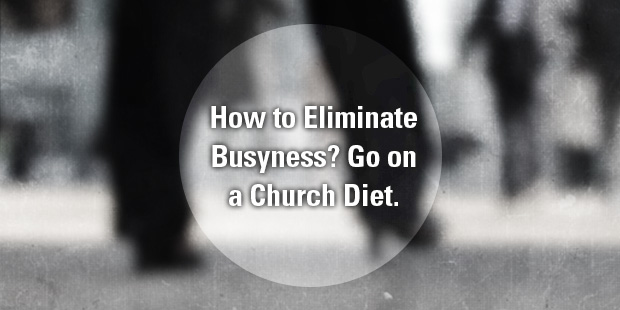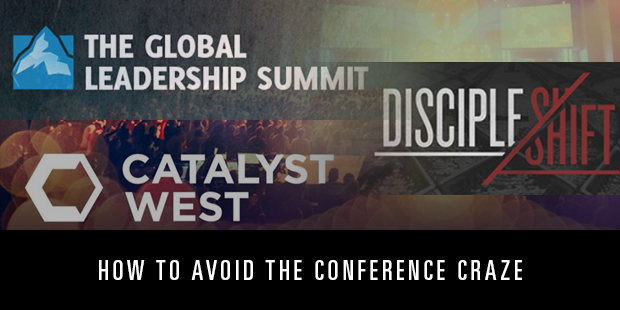
How to Eliminate Busyness? Go on a Church Diet
Most churches—more than eight out of ten—are busy. Too busy. These churches need to slim down their plethora of programs, activities, and ministries. They need to go a busyness diet.
Unfortunately, many church leaders equate activities with godliness or ministry fruitfulness. For certain, churches must have some clear plan of discipleship for their members. Sadly, some of the busiest churches actually diminish discipleship fruitfulness. And ceasing certain activities in the church can be extremely hard. You can run into sacred cows and favored ministries. Still, most churches should pursue a busyness diet for at least seven reasons.
- Excessive activities can actually preclude members from growing spiritually. I actually interviewed one church member who said he didn’t have time to read his Bible. He was worn out almost every day from church activities.
- A church that is too busy rarely evaluates the effectiveness of its activities. Leaders often erroneously presume that the busyness is a sign of fruitfulness.
- Activity-focused churches are often inwardly focused. Those ministries are typically for the members and are rarely evangelistic or community focused.
- A busy church can hurt families. Many churches have different activities for children, students, and adults on multiple days of the week. Family members rarely have time together.
- Activity-focused churches can cause member burnout. When a member burns out, he or she then drops out.
- It is difficult for a church to do a few things well when it does too many things. Quantity thus replaces quality, and the most vital ministries suffer.
- Busy churches often lack vision clarity. Because these churches are going in so many directions, members are confused about the priorities and vision of the church.
Try this exercise. List every ministry, program, or class that your church offers in a year. If the list is exceedingly long, see if just a few can be eliminated without much pain. Then, before you add anything else to the activities of your church, make a commitment to eliminate two existing activities.
Admittedly, church busyness diets are not always easy or pleasant. But they can make the difference between a busy church and a fruitful church.

Tags: Busy Churches, Ministry Treadmills, Thinkholes, Thom Rainer


















